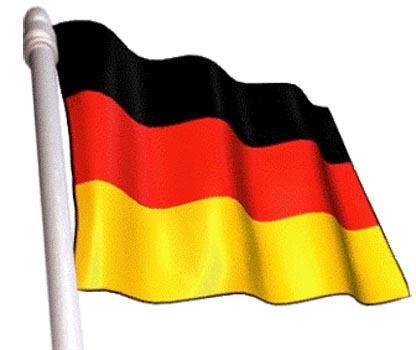Freed from the law of blood, migrants settle into Germany
 Berlin - Until 2000, Germany applied the law of blood, which divided the immigrants in Germany into two classes. Those from Russia and Romania who claimed ancient German roots won instant German citizenship. The rest remained lifelong aliens.
Berlin - Until 2000, Germany applied the law of blood, which divided the immigrants in Germany into two classes. Those from Russia and Romania who claimed ancient German roots won instant German citizenship. The rest remained lifelong aliens.
In the decade since the law was abolished, Germans have started to get used to the idea that they are a patchwork of ethnicities, embracing a large number of citizens with Turkish roots as well as blacks and Asians.
In many ways, that simply recognized a situation that already existed on the ground.
Modern Germany hired many foreigners, first Italians, then Turks, to work in industry from the 1950s on. They were dubbed the "guest workers," a not-too-subtle way of urging them to go home when the work ended. But from the 1970s, refugees arrived with no homes to which to return.
Their children were born and educated in Germany. But without "German blood," the guest and refugee children had few rights.
When they reached the age of 16, each had to apply in person at alien-registration offices for a temporary residency permit, recalls Yasemin Karakasoglu, a professor of education at the University of Bremen, himself a leading researcher on integration.
From 2000, Germany began conferring citizenship on everyone born on its soil.
It liberalized its immigration laws in 2004 and made pledges in 2007 to help immigrants settle in. That was effective recognition, after decades of denial, that Germany is no longer a nation defined by blood.
"A generation is rising now - children with migratory origins, but also German children - who find it perfectly normal that someone born in Germany has German nationality automatically, regardless of whether they are black or white," Karakasoglu said in an interview.
Germany does not count the ethnic allegiances of its population of 82 million, but it is estimated that 15 million have migratory origins, a term that embraces anyone whose ancestry is not 100-per- cent local.
The tally includes a large number of people from eastern Europe, Russia and Kazakhstan who are still perceived as outsiders, though they were granted instant citizenship in the 1980s and 1990s because they descend from settlers who left Germany hundreds of years ago.
Counted another way, 24 per cent of babies born in Germany in 2007 had at least one non-German parent, federal statisticians say.
Fritz Pleitgen, a former director-general of major public broadcaster WDR, has called for the media to reflect that mix, and copy US television, where black and Latino characters are a standard part of most shows.
Karakasoglu said, "We are in that transition right now."
Compared to 10 years ago, a significant number of television presenters have foreign-sounding names. In crime dramas, some of the police are now ethnic Turkish. But some print publications still do not reflect the change in the make-up of German society.
"I saw an article in a women's magazine, Brigitte, about how mothers and daughters keep themselves looking young, and from the photos, none of the women seemed to be immigrants," she said.
"Compared to other European nations, we do not have any major xenophobia at the moment here.
"But there are ideas of what it means to be German, to belong, which are closely linked to the assumption that you have German parents and grandparents and have your roots in Germany."
Karakasoglu has locked horns with best-selling German authors who have branded Islam in Germany as backward or patriarchal, or who suggest that Muslim girls adopting the headscarf are oppressed.
Her writings have argued that migrant families evolve in subtle, individual ways. For example, many teenage Muslim girls may wear headscarves as a move to greater personal independence within the family or to make a bold statement of identity.
She said a government consultative commission on Islam had given Muslims a voice, perhaps in a way the government had not expected.
"I tend to be optimistic," Karakasoglu said. "There has been a fresh start here since 2000." (dpa)